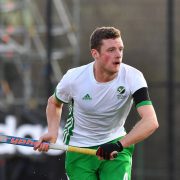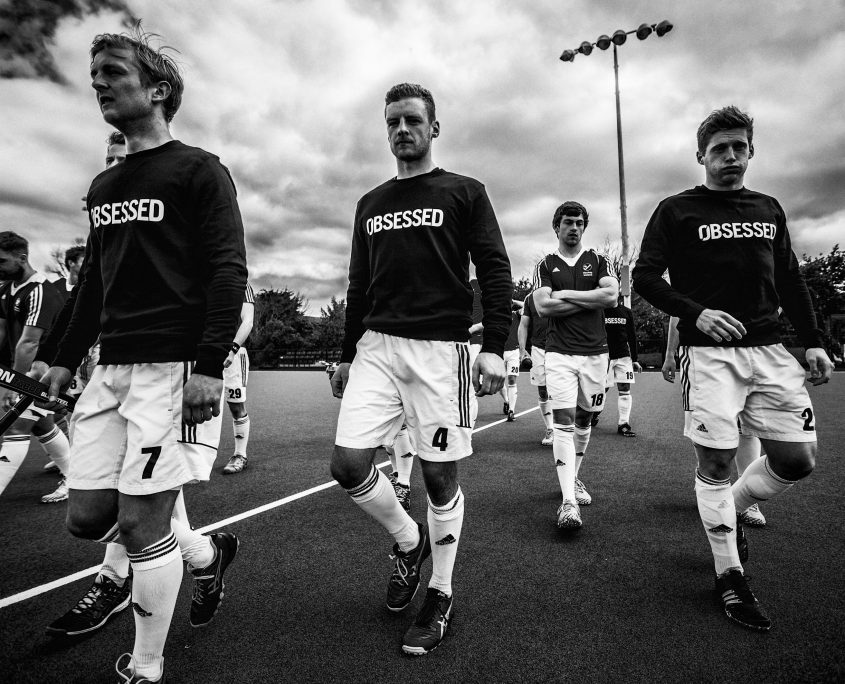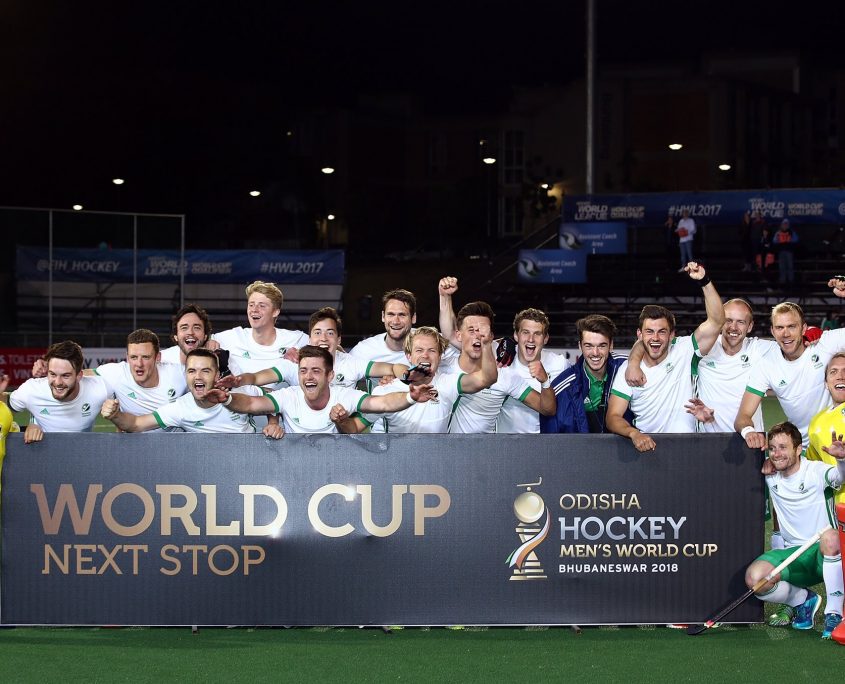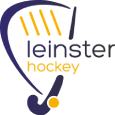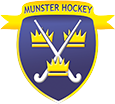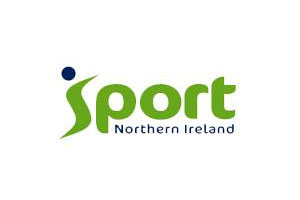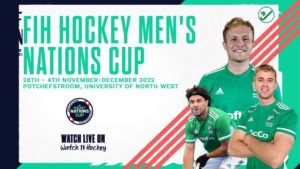Bell formally steps back following his “magical era” with the Green Machine
Jonny Bell has retired from international hockey having played an in crucial role for the Green Machine from his debut in 2012, encompassing 181 caps – 29 as captain – the 2016 Olympic Games, the 2018 World Cup and three European Championship A division events.
The fearless defender from Lisnagarvey says it is a natural time for him to step away following a superb career with his last formal cap coming in 2019 at the Olympic qualifiers in Vancouver against Canada.
“I can look back at all the great things we did between 2012 and 2019, it really was a magical era to be part of and I am very lucky my career coincided with that period for Irish men’s hockey,” the 34-year-old Bell said with typical modesty when reflecting on his time in green.
“There have been better players than me down the years who didn’t get that so I am very grateful. For me, it is the friendships I have taken away, getting to play with so many guys who are lifelong friends which is something I really cherish.
“There are endless coaches to thank from my early days up to the likes of Craig Fulton to Paul Revington and numerous club coaches but also the support staff – the likes of Lisa Costley, Niamh Maguire who kept my body going so long and the people in the office like Joan Morgan and Adam Grainger who booked flights and got programs organised. They don’t often get a lot of thanks but they really make an impact.
“To my own club mates who have provided that competitive edge at club training to keep me sharp over the years, Erroll Lutton who has been a source of good advice and mentorship. And, of course, to my own family, mum and dad who always helped me maintain a useful sense of perspective, and my girlfriend Ashley – who is now my wife – for her support and encouragement!”
Bell was something of a late bloomer when it came to international hockey, making his debut at the age of 24 having never played Irish underage teams.
Indeed, his early ambitions mainly zoned in on playing for the Garvey first team where he cut his teeth in the game and remains to this day. His two older sisters played at the club as juniors and future team mate Brian Waring’s mother introduced him to the sport in P5 at Friends School, giving him a strong connection from day one.
He would get a strong tutelage from the “school of hard knocks” on his way up, progressing to a second eleven team packed with legends like Alan Dowd, Dan Clarke, Jimmy Kirkwood, Julian Stevenson and Pakenham Pim, all coached by Hockey Ireland Hall of Famer Terry Gregg.
Given the nature of the team, he was often used in peripheral roles and he missed out on the Ulster-16s, partly due to his size. The provincial coach at that juncture was Drew Campbell who made that decision but he would go on to make the “masterstroke” when he took on the reins at Garvey, switching him from right-back to the centre. It proved a key moment in his development.
“He redeemed himself in my view when he had that masterstroke which really helped my career!” Bell laughs of the time.
“Growing up, playing for Lisnagarvey was always my priority. Leaving school but staying at home, a large part of it was that. I always looked up to the guys playing for the first eleven and that was my only focus.
“I never really thought too seriously about playing internationally until I got that first call-up from Paul Revington for a training session. The first few trainings were certainly a shock to the system!”
Thank you all once again for your continued support! Big win v Pakistan but big one is on Sunday #RoadtoRio pic.twitter.com/TEi0DPdNPO
— Ireland Men's Hockey (@IreMenHockey) July 3, 2015
His formal debut came in the lead-up to the 2012 Olympic qualifiers with games against the Czech Republic after several test fixtures. With that cycle coming to a conclusion, Bell became a more regular feature from 2013 onwards, playing in the World League Round One in Wales before featuring in that summer’s World League Round Three in Rotterdam and the European Championships in Boom.
While that summer was hit and miss from a results’ perspective, it formed a necessary phase in building the golden era, particularly when Craig Fulton came on board as head coach in 2014.
“I played against him and knew he was a real fighter and a warrior with that South African mentality and that aligned with my own mentality. I learned a lot from him.
“His era benefited technically from the huge grounding put in place by Revington and he was able to galvanise us as a team, instilling a mentality and a way of playing that we all subscribed to.
“You could feel a real unity in the team, that we were united around a common purpose and cause with real belief building. It was off the back of the failure to qualify in 2012 that really galvanised the team. We started to have a DNA based around really solid gritty defence, providing the platform to play from.”
Bell embodied that DNA, a defender with a natural instinct for putting personal safety to one side to block that last ball, typified in the 2015 run to Olympic qualification and that famous 1-0 win over Pakistan.
A special first week in the Olympic village. The dream is starting to feel very real ahead of game 1 tomorrow… pic.twitter.com/CRDpfVsQKT
— Jonathan Bell (@Jonnypwbell) August 5, 2016
He says those interventions became second nature to the team.
“It’s a hard thing to train or develop but there is that competitive spirit and if you are passionate around a cause, that will to win and succeed – that’s when it comes out.
“Everyone was making that joint sacrifice – job promotions or whatever, that stuff can wait. You have a short window in your life where you have the opportunity and privilege to do something really special.
“It was about grasping that opportunity, knowing that you had won your preparation, doing everything within your power to do the best you could, and ultimately walking away with no regrets ”
He carried a groin injury through that qualifier series which ruled him out of the European bronze run in London. The break allowed him to be ready for 2016 and Rio – “a year like no other”.
“There was a real fervour and clamour of interest along with media interest for Irish hockey. It was uncharted waters, exciting but nerve-wracking to be part of. It was certainly a magical year and one I look back on with fond memories.
“It was a challenge to keep everyone playing for the team, because ultimately everyone just wants to be on that plane. Selection plays into the mix and made it a challenge for the unique chemistry we made within the group. You didn’t want to lose that.”
Ultimately, he made the plane to the five-ringed showpiece. On reflection, the margins were fine – Ireland were a couple of inches from a draw against India; they went into the final group game with Argentina needing a win to advance and eliminate the eventual champions into the bargain.
It was right in the mix with nine minutes to go, level at 2-2, before Gonzalo Peillat dashed that dream.
“At the time, you think about the results and could you have done better, punched more above our weight like we were used to. When time moves on, you look back with more leniency: ‘we made it to the Olympics, we are Olympians, we brought Irish hockey to the top table.”
They were back on the winning trail in 2017, reaching the World Cup with a first ever win over New Zealand to get there in trademark style, a 1-0 guts and glory effort in Johannesburg.
“It was incredible to follow up with another qualification, coming down to a game against higher ranked New Zealand and another heroic effort to get over the line”.
“Going to a second major tournament in three years, we hoped to make more of an impact. The team was evolving with a nice blend of youth and experience but it didn’t work out for us on the pitch. With a new coach embedding a new philosophy and way of playing, taking its time to adjust. That changeover of it, the timing wasn’t ideal. We were fortunate to have a coach of Alexander Cox’s quality but it didn’t work out for us on the pitch.”
That evolution carried through to the 2019 Tokyo qualifiers with Mark Tumilty taking the reins and the brink of a second successive Olympic spot. That went up in smoke in the most heart-breaking fashion, a controversial last second stroke and a subsequent shoot-out defeat.
It proved to be his final cap: “As a player, you want a fairytale ending. You always want more, especially when you have played at those big tournaments and it becomes a drug – not that I have taken any! “It is an addictive thing and you want to feel that buzz again. Vancouver wasn’t that and then the Covid break, along with my age, it was that natural break. When I look back, I won’t look back at isolated moments like Vancouver but the bigger picture.
“I am very proud of all the achievements we had. Getting to captain the team was an incredible privilege, something I never thought would happen.
“I remember being given the armband for the first time in Bisham Abbey and being surrounded by guys in that room who I looked up to for years and I saw as being legends of the game. It was a surreal moment. I will always cherish that.
“I’ve taken a good bit of time away and over the summer I came to the conclusion it was definitely time to retire. Qualify or not for the 2023 World Cup, my decision was already made.
“If we had qualified, it would have made it even easier, knowing we were in a good place and back at that top table. Besides, the result in Cardiff, I am delighted to see a crop of young players taking up the reigns and I wish Tum and the team every success in the future.
“For me it’s time to focus on other things in my life. Work, married life, club hockey and, down the line, I wouldn’t mind getting involved in coaching and giving back to the sport in Ireland because I got an awful lot out of it and feel I can make a contribution which I am keen to do.”
